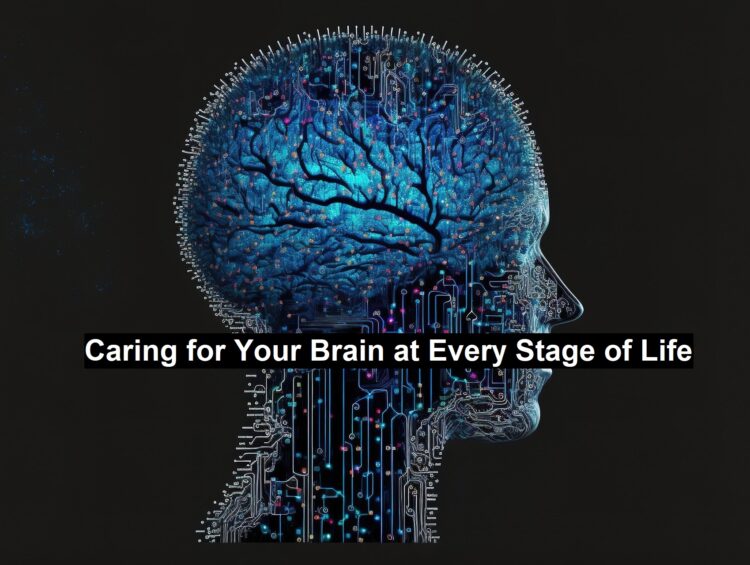Your brain is your most powerful tool and protecting it as you age is essential for maintaining mental sharpness and overall well-being. Like the rest of your body, your brain thrives on care and attention. Making smart lifestyle choices at every stage of life can help fend off cognitive decline and enhance mental agility. Here’s how to support your brain health through the decades.
In Your 20s and 30s
This is the time to establish habits that will keep your brain thriving for decades to come. Physical activity is a cornerstone of brain health, promoting the growth of new brain cells and improving memory. Running, yoga, or even a dance class can do wonders for your mental agility.
Mental stimulation is equally important. Dive into learning a new skill, solving puzzles, or playing strategy games like chess to enhance your brain’s flexibility. Stress management is critical too—try mindfulness techniques or meditation to sharpen focus and reduce anxiety. Limiting screen time can help prevent mental fatigue and maintain focus.
Read: How Much is Too Much? When Cosmetic Enhancements Become a Health Risk
In Your 40s and 50s
As your brain’s priorities shift to preserving function, it’s time to focus on optimizing your daily habits. A nutrient-rich diet becomes a powerful ally. Foods like fatty fish, dark leafy greens, nuts, and berries provide essential nutrients to support cognitive health and reduce inflammation.
Don’t overlook the importance of rest and recovery. Chronic stress and insufficient sleep can take a toll on brain performance. Strike a balance between staying mentally active and taking time to recharge. Whether it’s through quality sleep or relaxation techniques, rest is vital for a sharp mind.
In addition, incorporating regular visits to medical professionals, such as a dysautonomia specialist, can ensure your mental health isn’t at risk.
In Your 60s and Beyond
Maintaining your brain health becomes even more crucial as you age. Regular brain exercises—like memory games, language learning, or creative hobbies—can slow cognitive decline. Staying socially engaged is just as important. Join clubs, volunteer, or participate in community events to keep your mind active and connected.
Pay attention to your physical health, too. Addressing hearing loss early with hearing aids can ease cognitive strain, while regular medical check-ups and cognitive assessments ensure timely intervention if issues arise.
At Any Age
Consistency is key. Regular exercise, a balanced diet, managing stress, and staying socially connected are universal strategies for protecting your brain. Small, consistent actions now can lead to significant benefits later in life.
Caring-for-Your-Brain
For more actionable tips on keeping your brain healthy at every stage, check out the accompanying resource.





